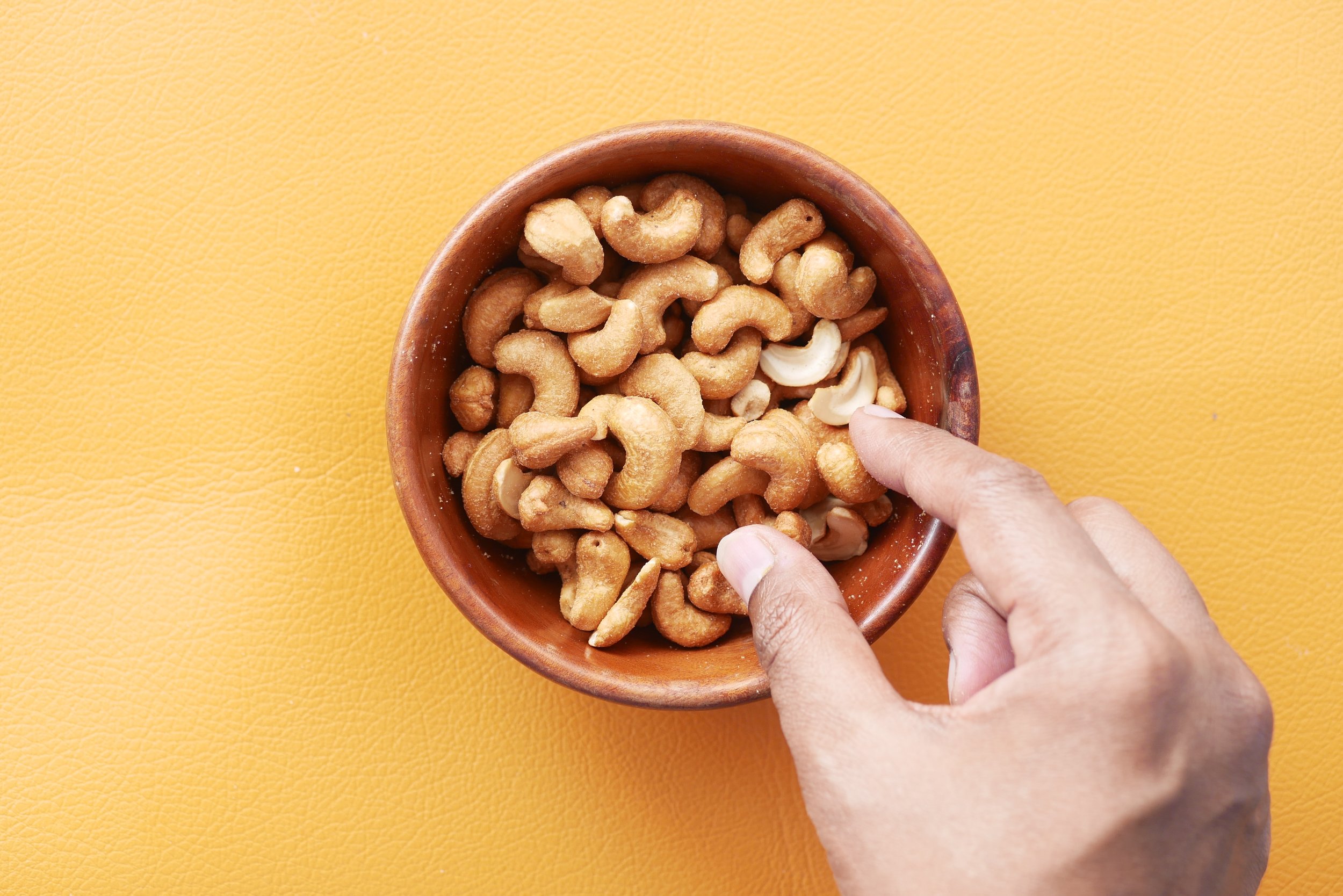Cashews – The Good, The Bad & The Ugly
When considering the greenhouse gas impact of our foods there is concern about cashews on many levels.
They are grown in Brazil, Vietnam, India, Africa, and Southeast Asia. Cashews are not a good first choice for several reasons.
The majority of cashews come from India and Vietnam, and picking them isn't an easy process. Cashews hang from the bottom of a cashew apple. The nut is removed from the bottom and has to be specially prepared due to a high amount of a toxin called urushiol. They have several tough outer layers and those layers are toxic. Workers earn a pittance for shucking cashews, and many of them have suffered permanent damage from the toxic liquid that the shells release. This is especially difficult for organic cashew farmers. They can’t use some of the chemicals and cleaning agents that regular cashew farmers use. The shell contains an irritant known as anacardic acid, which causes a painful skin rash when touched. The cashew, actually a seed and not a nut, is in the same plant family as poison ivy and sumac. Cashews come at a price, and it's paid by the people who harvest them. An exposé by Time magazine uncovered Vietnamese cashews are often the product of forced labor camps. The labor and challenges that go into harvesting and processing is why cashews tend to be pricey.
Cashews are roasted at high heat, either by steaming them in a large rotating drum or vat of boiling oil to remove urushiol before they can be shelled, dried, and peeled. Cashews are roasted a second time if they’re sold as roasted. A second round of roasting helps ensure that urushiol residue is removed.
Conventional cashew trees are heavily sprayed with pesticides and are often genetically modified (GMO). They might also be treated with fungicides, synthetic chemical fertilizers, and all kinds of contaminants and unregulated processing. Organic cashew trees are not supposed to be treated with any of these things, but regulations vary in other countries. Consumers never know. One advantage to organic cashews is that they usually come from smaller farms.
Cashews labeled as raw have been heat-treated, either through roasting or steaming, to remove urushiol. Raw, in this sense, means that they have nothing else added such as salt or flavoring.
Like most nuts and seeds, cashews contain phytates which makes it more difficult for your body to absorb the protein, vitamins and minerals they contain. Soaking nuts and seeds overnight (or even for an hour) reduces their phytate content and improves digestibility.
Cashews are good sources of fiber, protein, magnesium, vitamins E, B6 and K, copper, zinc, phosphorus, selenium, and iron. They are very versatile as well as delicious in many plant-based non-dairy foods such as butter, milk, cream, sour cream, dips and sauces.
Conclusions
Cashews are not recommended when another nut or seed will work just as well.
Consider worker exposure to toxins and slave labor.
Questions whether toxins have been removed or added in their processing.
Long distance shipping.
There are some plant-based recipes that work best with cashews.
Their mild flavor offers an excellent choice for a non-dairy cheesecake, for example, but so does tofu.
Cashew cheese, butter and other choices are better than animal dairy by far when considering all the factors of the animal industry. Given the choice between cashews and cows, cashews are definitely better.
If you have a choice between cashews and other nuts and seeds, there are better choices.
Hazelnuts, macadamia nuts, pumpkin seeds, sesame seeds, sunflower seeds, soy, even almonds are a better choice - unless you are making something that only works with cashews.

